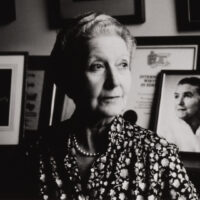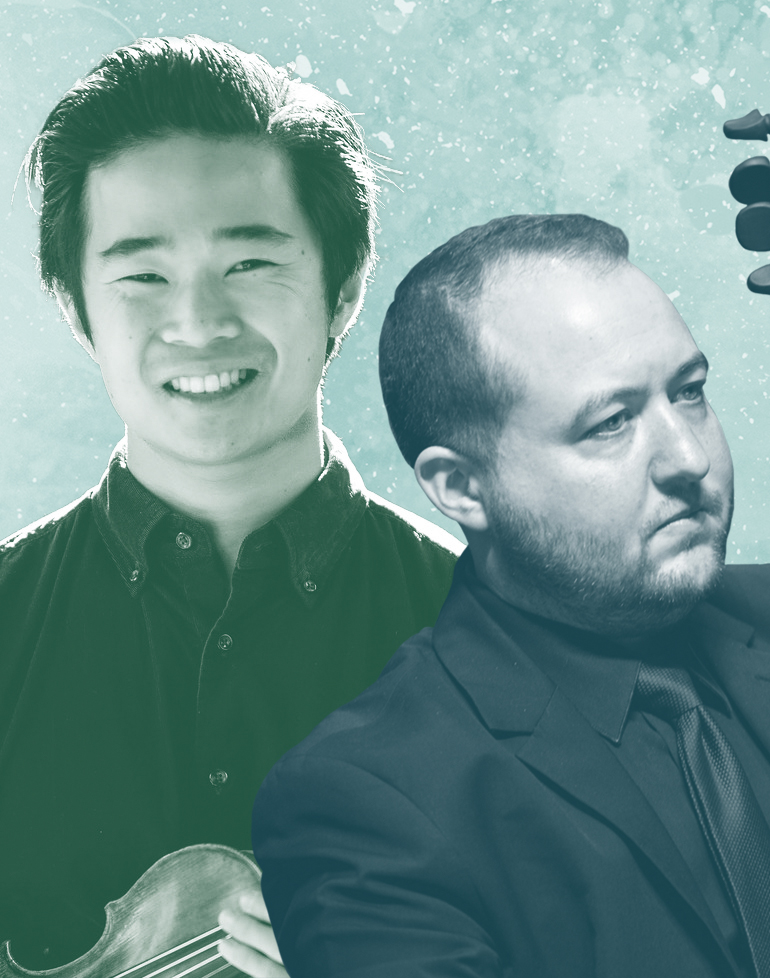
2022 Outstanding Graduates
By Tyler Francischine
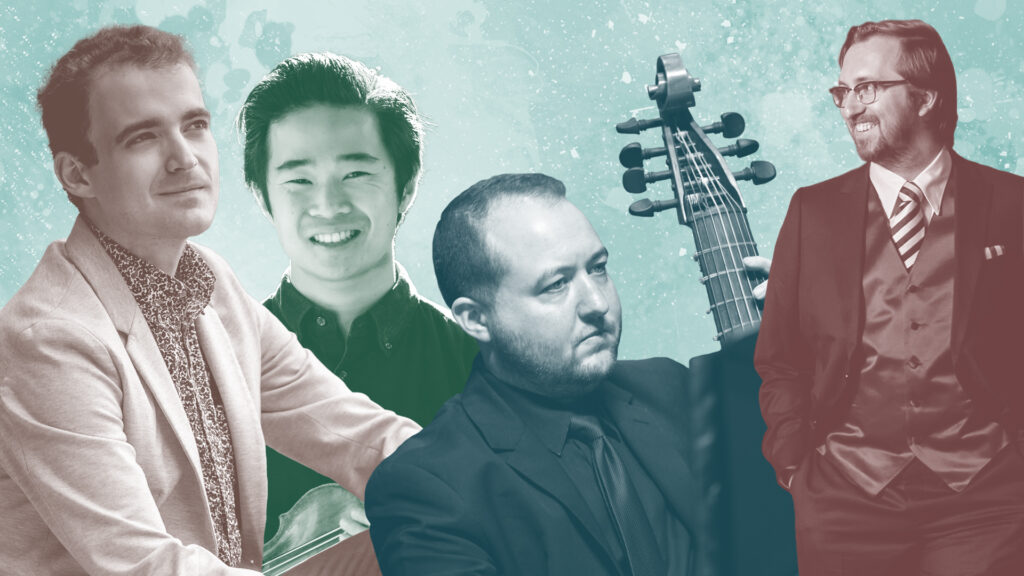
USC Thornton’s 2022 outstanding graduates in composition, choral music, musicology and violin performance are recognized for distinction.
Four USC Thornton students were chosen as the 2022 Outstanding Graduates for demonstrated excellence in performance and scholarship, outstanding service and leadership
Bachelor’s
Adam Karelin (B.M. ‘22)
Composition with a minor in linguistics
Master’s
Duncan Tuomi (M.M. ‘22)
Choral music
Doctoral
Malachai Bandy (Ph.D. ‘22)
Musicology
Graduate Certificate
Albert Yamamoto (B.A. ‘18, GCRT ‘22)
Performance – violin
Adam Karelin (B.M. ‘22)
For an in-depth look at the accomplishments of Adam Karelin, this year’s USC valedictorian, click here.
Duncan Tuomi (M.M. ‘22)
USC Thornton graduate student Duncan Tuomi hit a real turning point last summer when he earned first place in the American Choral Directors Association’s (ACDA) Raymond W. Brock Student Composition Competition.
“It cemented for me the possibility of wearing two professional ‘hats,’ so to speak, as conductor and composer,” he said, “and the support I received from the faculty and from my peers was truly heartwarming and special.”
His relationships with his peers and professors also firmly established his desire to continue his studies at USC Thornton. Graduating with his master’s degree in choral music this spring, Tuomi starts the doctor of musical arts (DMA) program in the fall.
“The best part of this experience, by far, has been the connections that I’ve made with my peers,” he said. “This is such an incredibly talented, supportive and fun group of people to get to see on a daily basis, and the time I’ve spent learning with – and learning from – them has been deeply fulfilling and has made my experience here so much more meaningful than what could be provided by academics alone.”
It’s impossible, he added, to choose one inspiring professor, having had memorable learning experiences with so many.
“Dr. Jo-Michael Scheibe really took me under his wing as a growing composer and afforded me opportunities to get my name out into the world,” he said of the former department chair who has also served as national president of the ACDA.
Tuomi developed a fast rapport over fantasy literature and chess with the current chair of the Thornton Department of Choral and Sacred Music, Cristian Grases.
“His insight has always brought the best out of me,” Tuomi said, and he was buoyed by Associate Professor of Practice Tram Sparks’ “sweet and nurturing teaching method.”
“In moments of doubt, when I was unsure of my skills as a conductor, she has consistently been able to help me recenter my thoughts and approach each opportunity as a chance to learn and grow.”
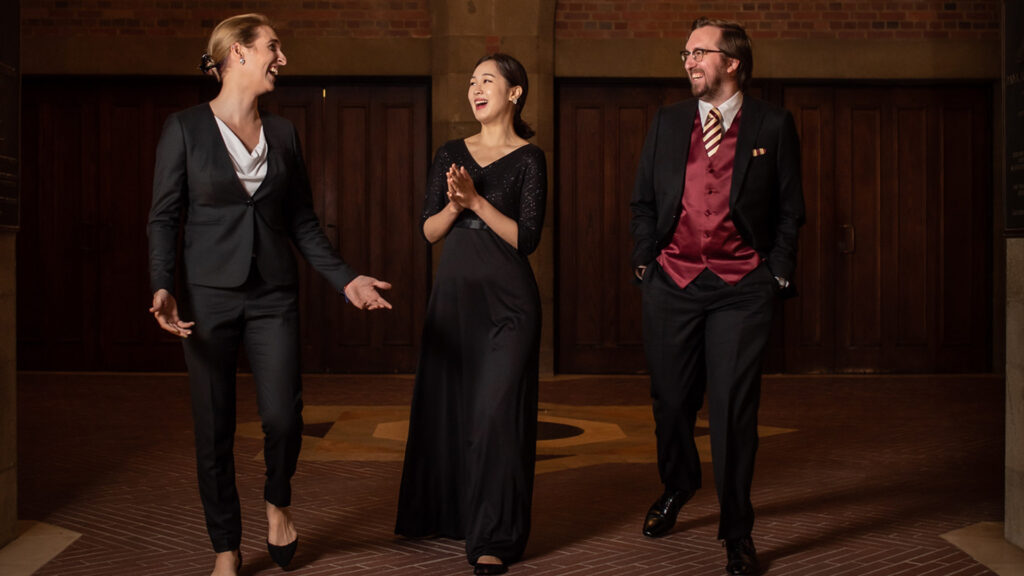
Another inspiration was Associate Professor of Practice Nick Strimple, internationally known for his work around music related to the Holocaust.
“His dry wit and vast knowledge of the repertoire made him both an invaluable resource and an absolute pleasure to be around,” Tuomi said.
Beyond the choral faculty, Tuomi also took private lessons for the past two years with an award-winning composer on the Thornton faculty.
“I don’t think I’d be nearly the composer that I am now without the mentorship of Dr. Frank Ticheli. He has constantly pushed me to pursue every avenue of creativity available to me, and to widen my compositional vocabulary beyond what I had known before,” he said.
In 2021, Tuomi served as assistant director for both the Apollo Chorus and the University Chorus. He was also a section leader for the Chamber Singers. Through courses and guest lectures, he said, he learned to expand his horizons and how to use his art for good.
“I have always been interested in using my art to make positive impacts in efforts toward international inclusion, social justice and uplifting historically ignored voices,” he said, “but I knew very little about how to effectively accomplish that until having the opportunities to experience coursework that dealt in these fields directly, as well as hearing fantastic guest lectures that focused in on these issues that spoke so powerfully to me.”
In particular, he recalls his Choral Literature III class, which focused on the choral music of cultures outside of the traditional Western classical canon, especially Latin America and the Asian and Pacific regions.
“This course provided me a means of understanding and accessing the music of cultures with which I was not familiar and incorporating them more fully into the concerts that I program,” he said. “Using the tools that Thornton has provided me, I presented a lecture recital in the spring of 2021 on choral music as a form of resisting fascism, using Lajos Bárdos’ allegoric piece ‘A Nyul Eneke’ and my own composition to William Butler Yeats’ poem ‘The Second Coming.’”
After Tuomi earns his doctoral degree in choral music, he plans to return to the Pacific Northwest, where he grew up. He’d like to find a collegiate position, where he can split his time among teaching, conducting choirs and composing new music.
“The opportunities that I will have as a DMA, in addition to the knowledge base I’ve already built up in my master’s, will provide me with both the skills and the career experience necessary to prove my worth to the institutions that I would like to one day be working with,” he said.
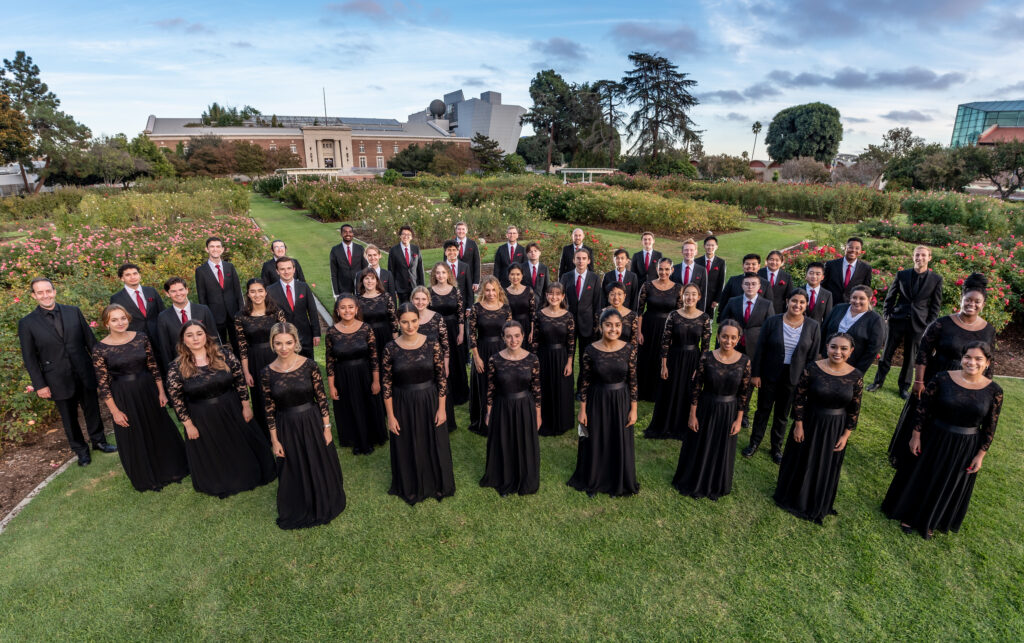
Malachai Bandy (Ph.D. ‘22)
Malachai Bandy grew up in Los Angeles as a “multi-instrumentalist orchestra kid” playing double bass, oboe and percussion. Before landing at USC Thornton as a doctoral student in musicology, he spent a lot of time on campus and around the faculty.
“It’s a wonderful thing to have memories of relatives’ recital receptions as a 10-year-old, all-state youth orchestra lunch breaks as a 12-year-old, music festival pre-audition jitters as a 17-year-old and studying for my graduate screening exams as a 26-year-old – all in that same grassy quad near the Piatigorsky statue outside of [the Raubenheimer Music Faculty Building],” he said.
For Bandy, who started Renaissance winds studies in 2011 with Adam and Rotem Gilbert, professors in Thornton’s Early Music program, USC Thornton was a natural choice.
“I chose USC because Adam and Rotem, and the department and faculty in general, actively wanted me to keep performing, without regard for artificial boundaries between musicological theory and practice that, whether spoken or not, drive so many other high-level schools,” said Bandy, who earned double bachelor’s degrees in music history and double bass performance at Rice University and also studies viola da gamba and violone.
“I’m privileged to say that with such a compact and powerful musicology program, I’ve had enormously impactful experiences either working with (as a mentee) or beneath (as a T.A.) every single musicologist on faculty – every single one, regardless of topical expertise,” he said. “While I could recount a thousand stories of transformative mentorship experiences with all, Adam and Rotem Gilbert will always be my models of true scholarly performance and performative scholarship. They were my reasons for coming to Thornton, and they will be my reasons for continuing to educate the next generations for the rest of my life.”
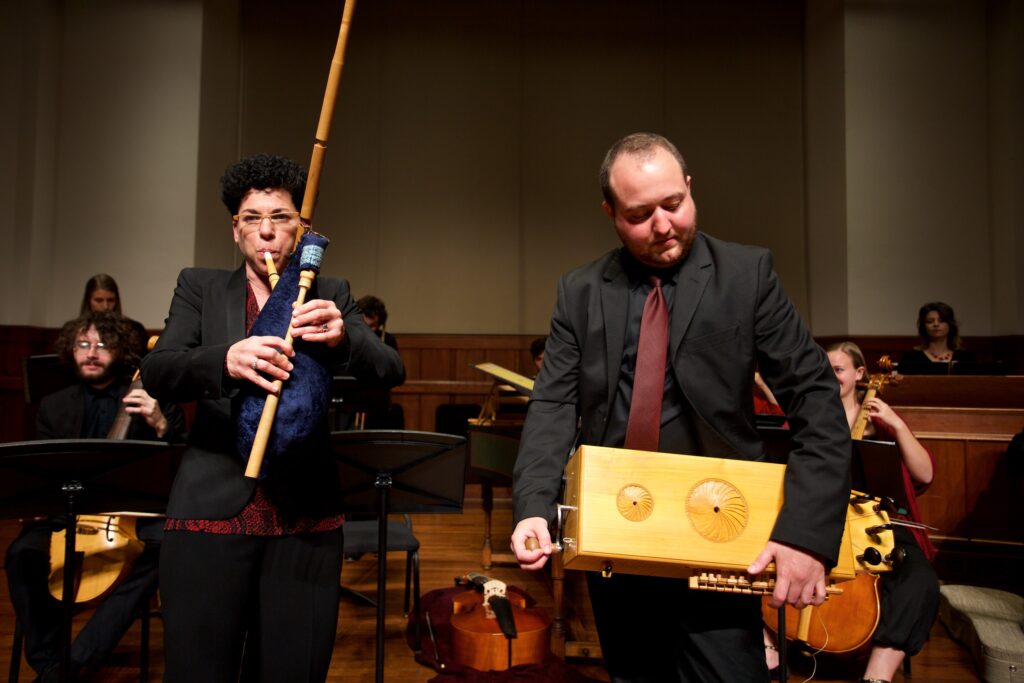
After teaching at Pomona College as an adjunct faculty member just before and during the pandemic, Bandy earned a position as a tenure-track assistant professor of music in music history.
“I’ll be able to teach pre-1750s music history courses, alongside a developing and rotating array of special topics courses related to my many musical interests: things like queer music and musicians (as a queer and trans person myself), performance practice, symbolism and esotericism, research materials and techniques and more.”
A recipient of the Oakley Endowed Fellowship and a Provost Fellowship, Bandy won two national prizes, the Irene Alm and Ingolf Dahl paper competitions, with two different papers in April 2019.
“That large-scale vote of confidence in my work was exactly the boost I needed to really see that my topic was viable enough to pursue as a dissertation project and beyond,” he said. “Three years later, I’m still madly in love with that topic, and I have at least five years of projects related to it already mapped out, on the horizon.”
In a long list of “musical and life lessons” learned at Thornton, Bandy said the most important was “specifically as a pre-1750s musician, the power of showing versus just telling.”
“Mind you, I love writing and speaking and language – they’re among the most vital tools we have toward preserving our musical past and preparing our future – but when one has exactly thirty minutes or five minutes or an hour or one minute to captivate an audience of modern, string-playing colleagues, there simply isn’t a substitute for real viol and hurdy-gurdy, in the proverbial flesh.”
While he continues as artistic director of the Crumhorn Collective, a student Renaissance ensemble he founded at Rice in 2009, he has also been performing with 15th-century specialists Ciaramella since 2011 and the Musica Angelica Baroque Orchestra since 2019. Ironically enough, his solos on early music instruments can be heard on the soundtracks of some of the hottest futuristic series like Outlander, The Walking Dead and Foundation, as well as the Star Wars: Tales From the Galaxy’s Edge virtual reality game.
The ability to focus on both scholarship and performance that attracted him to Thornton likewise brought him to Pomona.
“Like Thornton, Pomona has welcomed me specifically as a scholar-performer, because they, like Thornton and like me, believe in the concept of a truly well-rounded musical education and life in practice,” Bandy said. “To this end, Thornton has been and will continue to be in my Pomona classroom every single day.”
Albert Yamamoto (B.A. ‘18, GCRT ‘22)
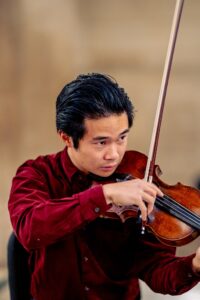
The competition is fierce to win a seat with a major orchestra – it’s a dream not all violinists will realize. Albert Yamamoto is one of the distinguished and fortunate few. A two-time USC Thornton graduate who earned his bachelor’s degree in 2018 and a graduate certificate this year (with a master’s degree at Yale in between), Yamamoto will join the Fort Worth Symphony Orchestra in August.
It is, without question, one of his proudest accomplishments, and he is grateful for his mentor, Adjunct Associate Professor Bing Wang.
“Professor Wang showed me what it takes to win an orchestra audition and how to be a professional musician,” he said. “She really helped bring my playing to a new level, and I will dearly miss our weekly lessons.”
In addition to that major career coup, he is equally proud that he helped an undergraduate pass the strings music minor audition. Yamamoto served on the panel when the student unsuccessfully auditioned the first time.
“I reached out to him expressing how much I liked his playing and that with some guidance, I could see him improving and having a better shot at passing the audition,” he said.
After Yamamoto worked with the student for a semester, he auditioned again and passed. He graduates this year with a minor in violin performance.
“Helping him improve and fulfill his goal was so rewarding because I could tell he really cares about music, and being able to share his excitement in lessons and when he passed made me so happy,” he said.
Yamamoto found models of that kind of support in his own professors. Wang and Associate Professor of Practice Lina Bahn were a source of “so much guidance and support” for him “as a musician and person.”
It was Bahn, who serves as the chair of the Thornton Strings Department, who encouraged Yamamoto to teach.
“Professor Bahn has helped me grow in many ways as a musician outside of performing violin. She encouraged me to teach at USC, and I really look up to her as an educator. I admire her seemingly endless knowledge of music and how she uniquely connects with students and makes everyone she meets feel very special,” he said.
Yamamoto said the “feeling of community” has been a highlight of his experience at Thornton, both during his time as an undergraduate when he studied with Distinguished Professor and Judge Widney Professor of Music at USC Midori Goto and over the past two years. And he will never forget his first orchestra rehearsal.
“The excitement and focus from everyone was tangible, and despite the size of the group, it was still an intensely, musically intimate experience,” he recalled.
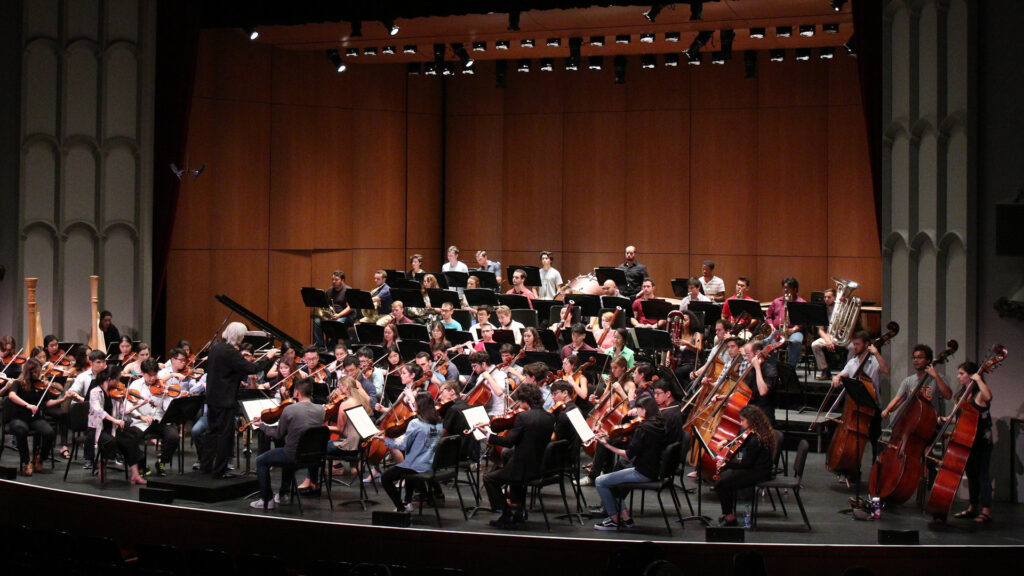
In his first year in the graduate certificate program, Yamamoto won a quartet and a Bach competition. For the past year, he has served as concertmaster of the USC Thornton Symphony. During the audition process, he learned the importance of taking care of himself as a musician.
“I used to try to rush the process so much, with the sole focus being the end result and without thinking about other things that facilitate success, such as exploring your curiosity, finding a sense of community, strengthening your friendships and networks and physical and mental health.”
For his first orchestra audition, he was so focused on winning that he exhausted himself.
“I couldn’t perform my best,” he said. “When I took my second audition, I took things one day at a time, making sure to balance my days with work, fun and relaxation. Instead of getting caught up in the end result, I focused on doing as well as I could each day, and that is how I was able to show my best and ultimately win the audition.”
While performing with the Fort Worth Symphony Orchestra, Yamamoto also hopes to teach and get involved in a wider variety of musical engagements.
“My experience teaching at USC gave me insight into how to connect with different types of people and students. Playing in such a wide variety of projects and performances has given me the confidence to explore new and unique collaborations I may have been more hesitant to pursue before,” he said. “USC has been the perfect place to learn and try new skills that I can use in my career.”
Read more about the 2022 USC Thornton Commencement:
Memories and Lessons Learned
As USC Thornton commences the spring 2022 semester, graduating seniors look back at their time as Thornton Student Ambassadors.
Starting New Journeys
USC Thornton alumni Emily Rosenfield and Diana Newman reflect on their recent debuts, while student Dominic Anzalone and alumnus and current graduate certificate student David Riccobono look forward to new opportunities.

